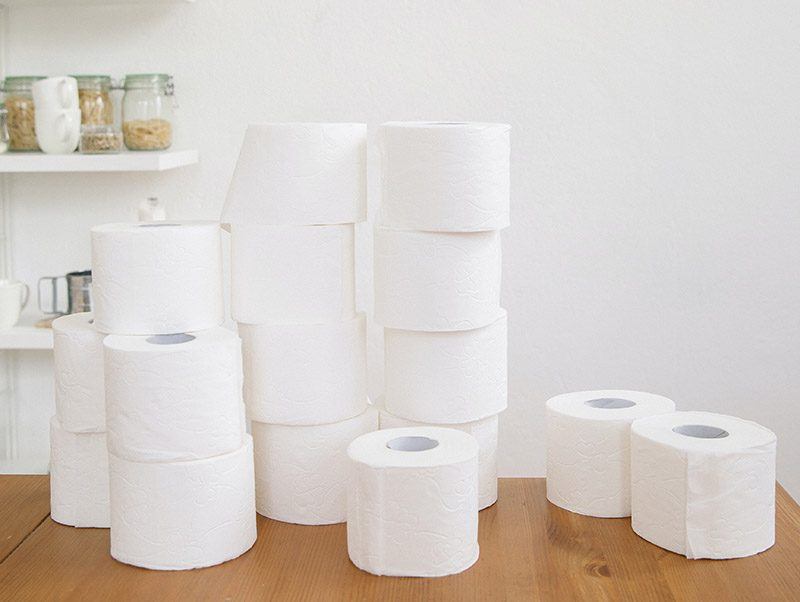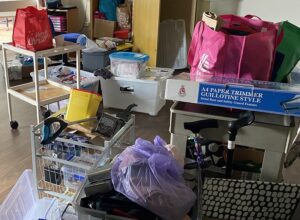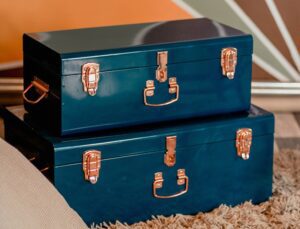
Do you pick up an extra something at the shops in case you run out? In case someone pops in?
Do you keep duplicates of items in case the primary one is missing or broken?
How about packing 10 sets of clothes for a one-night stay?
Just-in-case clutter can seem like something organised people have, but more often it comes from anxiety and indecision. It quickly gets out of control and erodes our mental and physical space, and makes our homes dysfunctional.
Just-in-case clutter – what if mine breaks or runs out?
Will it, though? And if/when it does, will you want the old understudy version, or will you end up buying a new one anyway?
FoMO plays a role here. How can you bear to be without a whisk for a day? Better to crowd the kitchen with 2 old bent ones for spares, even though the drawer catches on them every day.
Just-in-case clutter – what if I have guests?
Any guest I want at my house won’t mind if they eat from a bowl instead of a plate. They won’t care that I don’t have the perfect type of chocolate biscuit.
Just-in-case clutter – mystery items.
But what if you need the rogue set of keys or the random screws? Here is a hint: Pop them in a ziplock with a useby date a year ahead. That gives their purpose an opportunity to reveal itself.
Just-in-case clutter – gifts.
Gift cupboards are a prime example of holding onto stuff we may never use. Nowadays we have late night supermarkets, liquor shops and Uber. Delivery by drone is on the horizon. You don’t need to fear turning up somewhere empty handed.
What can I do about it?
Focus on letting go, rather than holding on.
Say “what if”. So you don’t have a whisk. What happens next? Maybe you pop out and buy one, perhaps you use a fork instead, or you just cook something else. Either way, it’s not disastrous. You are amazing, and will cope just fine.
Remember the value of your space when shopping and decluttering. Yes, the baked beans are on sale, but your real estate is very valuable. It’s worth more than the savings.
Shop with a list. Sometimes we have mental shopping lists stuck in our brains, e.g. “you can never have too many batteries” (yes you can), or “we always need tissues”.
Be realistic about the likelihood of actually needing it, or not being able to replace it easily. The Minimalists talk about a 20/20 rule – can you replace the item for less than $20 in less than 20 minutes from your current location? If so, you can release it. Folks living in a cattle station in the outback are given more leeway here. Although of course it’s a hypothetical argument.
Just-in-case clutter and waste.
“But what about the waste?” I hear you say.
– Just-in-case items are rarely used. Especially in cluttered homes, because you can never find them anyway.
– The waste has already occurred when you acquired the item. Having it sitting idle does not prevent waste.
– If it’s useable, donate it.
We all just went through a spate of pandemic lockdowns and people panic-bought all sorts of things. And guess what – the shops didn’t even close. It’s time to chill out people.
We rarely use our just-in-case items. They add complexity to our lives. They sit there hogging space, smirking at us and enjoying the free rent.
Check this post for the other types of clutter that are holding you back.






























